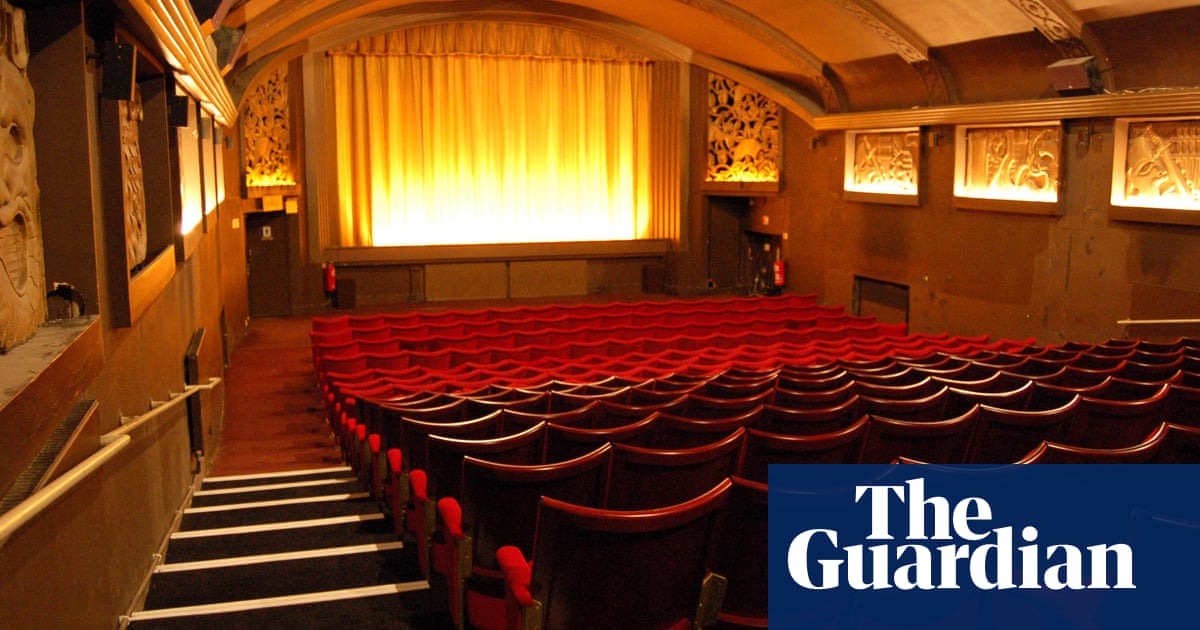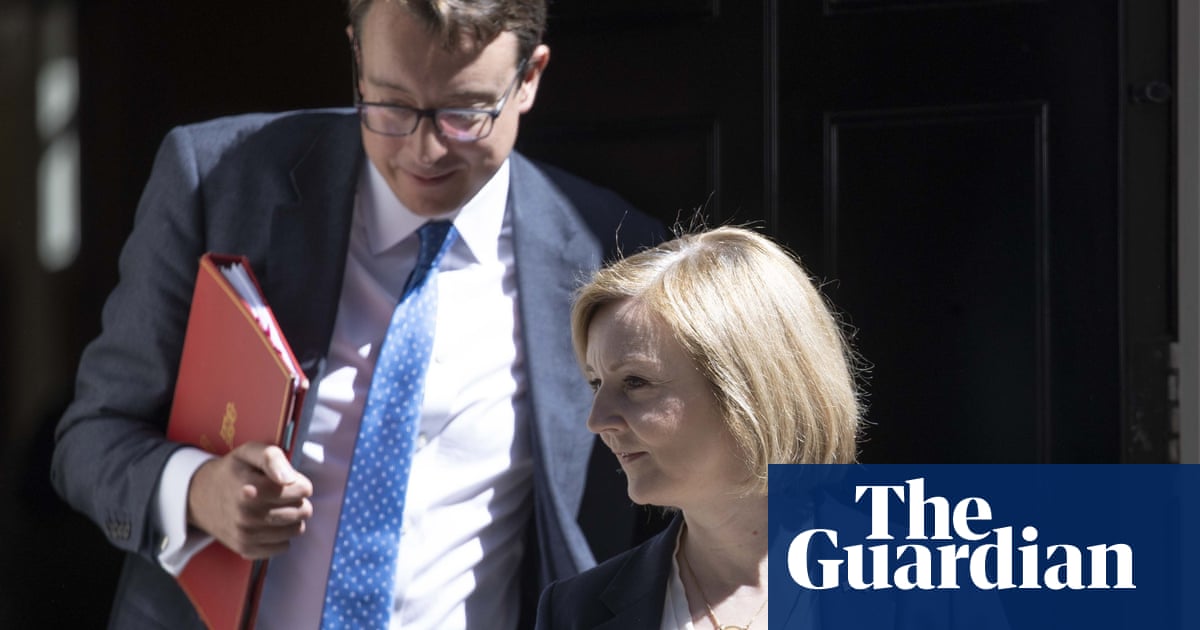
Liz Truss has said she will press ahead with plans for the UK to be a low-tax economy with less focus on wealth redistribution under her premiership, despite calls for caution from Tory grandees.
There were also reports that Truss, who is expected to be named as the new prime minister on Monday, was considering freezing energy bills this winter at a cost mooted to be as high as £100bn.
Asked about her national insurance policies, she said it was fair that her planned tax cut would benefit the highest earners 250 times more than the poorest, arguing it was wrong to view all economic policy through the “lens of redistribution”.
As analysts warned that relying on boosting economic growth to reduce income inequalities could increase disparities, Tory grandees sounded the alarm over what they said risked being an doctrinaire approach.
If the foreign secretary is confirmed to have beaten the former chancellor Rishi Sunak in the Tory leadership race, she would travel to Balmoral on Tuesday to be formally confirmed by the Queen as Boris Johnson’s successor in Downing Street.
In her only in-depth media interview of the two-month Tory leadership campaign, which took place after voting had closed, Truss told BBC One’s Sunday With Laura Kuenssberg show she would provide immediate help with energy bills if elected, but declined to say how.
“Within one week I will make sure there is an announcement on how we are going to deal with the issue of energy bills, and of long-term supply, to put this country on the right footing for winter,” Truss said.
“I understand that people are struggling, that businesses are also concerned about their energy bills and the impact it could have on their future.”
Truss nonetheless dismissed what she called fears of “an Armageddon scenario”, adding: “Britain has been through worse in the past – we have the attitude and spirit to get through it.”
Pledging to ensure secure long-term energy supplies, Truss said she did back some aspects of renewable sources but stressed her plans to push ahead with more North Sea drilling and fracking for shale gas.
Reports on Sunday night said that her team were discussing freezing gas and electricity bills with industry leaders. The level of the price cap has not been set but, according to the Times, the cost of the package is understood to be at the level of the Covid furlough scheme.
On the economy, she emphasised her prioritisation of tax cuts, saying it was more important to grow the economy than to try to reduce economic inequalities.
Shown calculations that her planned reversal of a recent rise in national insurance would benefit top earners by about £1,800 a year, and the lowest earner by about £7, and asked if this was fair, Truss said: “Yes, it is fair.”
She said: “The people at the top of the income distribution pay more tax, so inevitably when you cut taxes, you tend to benefit people who are more likely to pay tax.
“But to look at everything through the lens of redistribution, I believe, is wrong. Because what I’m about is growing the economy. And growing the economy benefits everybody. So far, the economic debate for the past 20 years has been dominated by discussions about distribution. But what’s happened is that we have had relatively low growth.”
Truss has repeatedly stressed her focus on lower taxes, reduced regulation and a smaller state, but such explicit advocacy of what resembles the trickle-down economics of the US under Ronald Reagan marks a striking break from Boris Johnson’s often interventionist levelling up agenda.
Luke Hildyard, the executive director of the High Pay Centre, a thinktank that focuses on ideas for a fairer UK, said the country was already one of the most unequal developed economies.
“By any reasonable benchmark, we really don’t do a lot to address unequal income distribution,” he said. “Saying, ‘We need to cut taxes for the rich’ and ‘We need to generate economic growth’ is at best making two random unrelated statements and at worst actively contradictory.”
Philip Hammond, a Conservative former chancellor, told Sky News’s Sophy Ridge on Sunday show that while he was an admirer of Truss in the past, immediate tax cuts “would deliver an inflationary stimulus and that is not the right thing to do”.
The former minister David Davis, who comes from the same low-tax wing of the Conservative party as Truss, said she should in particular “think quite hard about” her plan to reduce corporation tax, warning that a failure to balance the books risked inflation, higher interest rates and a plummeting pound.
“The worst outcome is, as it were, to give low taxes a bad name,” Davis said, adding that when in power Margaret Thatcher initially increased some taxes.
Davis also urged Truss to appoint a broad range of opinions to her cabinet, including Sunak “The greatest mistake that Boris Johnson made was that he created a cabinet of loyalists. It wasn’t the best people,” he said.
Truss, however, has shown few signs of giving way on either points, telling the BBC: “I follow through on what I say I’ll do.”
While her campaign team is refusing to comment on possible ministerial posts, it is widely expected she will mainly appoint allies and loyal MPs from the right of the Tory party, with occasional exceptions such Tom Tugendhat, who is tipped for a junior role.
Thérèse Coffey, the work and pensions secretary who is close to Truss, is expected to go to health. Chancellor and foreign secretary are still tipped to go to Kwasi Kwarteng and James Cleverly.
Suella Braverman, who made a leadership bid from the party’s culture war right wing, could become home secretary, while Jacob Rees-Mogg is expected to head the business department.
Also speaking to Kuenssberg, Sunak said targeted support was needed to tackle the energy bills crisis. “I think everyone is going to need some help given the scale of the challenge,” he said. “And then two other groups of people who will need further help. That’s those on the lowest incomes, about a third of all households in the country, and then the third group of pensioners.”
Sunak said he would remain as an MP if he lost, and did not rule out another attempt at the leadership. “Oh gosh, we’ve just finished this campaign,” he said, when asked if he could stand again. “So, I’d say I need to recover from this one. But I look forward to supporting the Conservative government in whatever capacity.”












